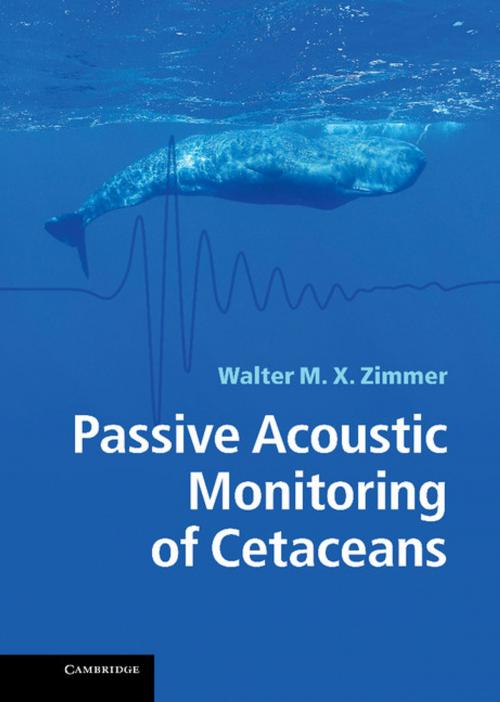Passive Acoustic Monitoring of Cetaceans
Nonfiction, Science & Nature, Science, Biological Sciences, Zoology, Biology| Author: | Walter M. X. Zimmer | ISBN: | 9781139063098 |
| Publisher: | Cambridge University Press | Publication: | April 21, 2011 |
| Imprint: | Cambridge University Press | Language: | English |
| Author: | Walter M. X. Zimmer |
| ISBN: | 9781139063098 |
| Publisher: | Cambridge University Press |
| Publication: | April 21, 2011 |
| Imprint: | Cambridge University Press |
| Language: | English |
Passive acoustic monitoring is increasingly used by the scientific community to study, survey and census marine mammals, especially cetaceans, many of which are easier to hear than to see. PAM is also used to support efforts to mitigate potential negative effects of human activities such as ship traffic, military and civilian sonar and offshore exploration. Walter Zimmer provides an integrated approach to PAM, combining physical principles, discussion of technical tools and application-oriented concepts of operations. Additionally, relevant information and tools necessary to assess existing and future PAM systems are presented, with Matlab code used to generate figures and results so readers can reproduce data and modify code to analyse the impact of changes. This allows the principles to be studied whilst discovering potential difficulties and side effects. Aimed at graduate students and researchers, the book provides all information and tools necessary to gain a comprehensive understanding of this interdisciplinary subject.
Passive acoustic monitoring is increasingly used by the scientific community to study, survey and census marine mammals, especially cetaceans, many of which are easier to hear than to see. PAM is also used to support efforts to mitigate potential negative effects of human activities such as ship traffic, military and civilian sonar and offshore exploration. Walter Zimmer provides an integrated approach to PAM, combining physical principles, discussion of technical tools and application-oriented concepts of operations. Additionally, relevant information and tools necessary to assess existing and future PAM systems are presented, with Matlab code used to generate figures and results so readers can reproduce data and modify code to analyse the impact of changes. This allows the principles to be studied whilst discovering potential difficulties and side effects. Aimed at graduate students and researchers, the book provides all information and tools necessary to gain a comprehensive understanding of this interdisciplinary subject.















